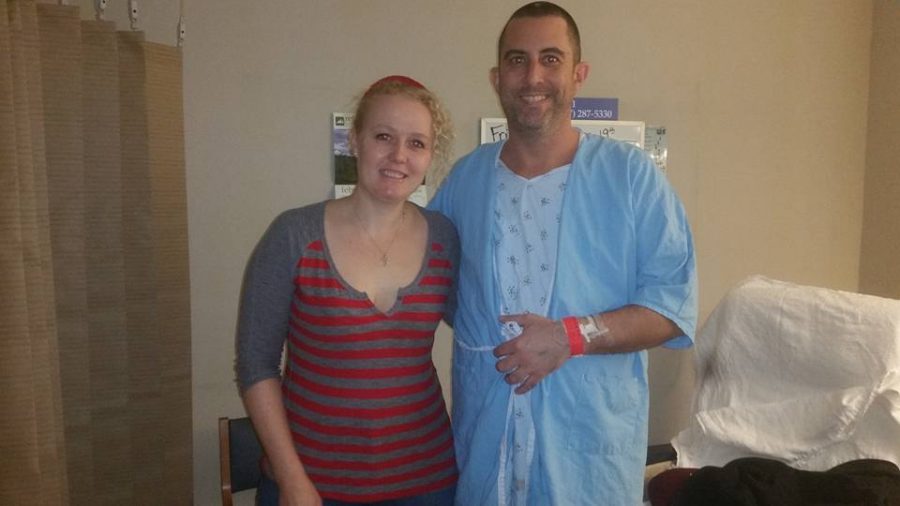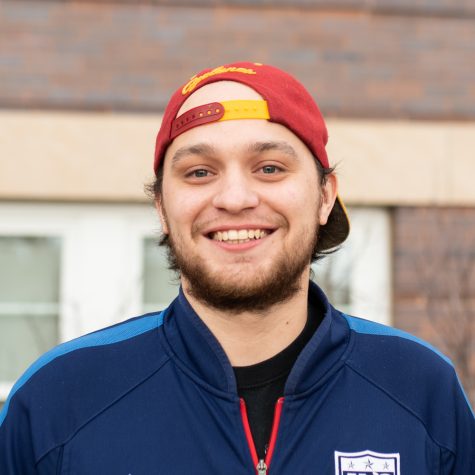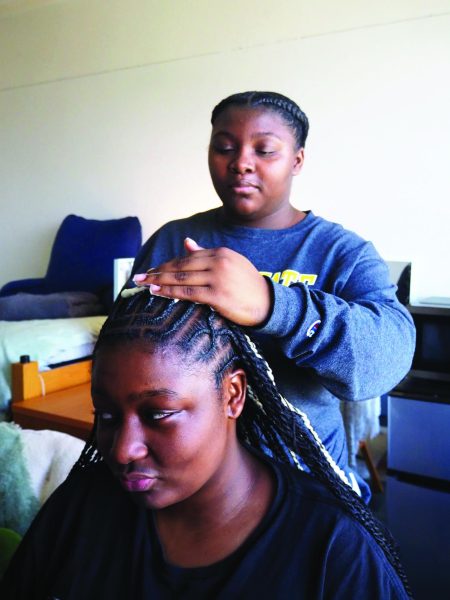A kidney named Penny saves the day
Chris Geidner with Jaclynn Geidner after she was released. Jaclynn is Chris’s sister-in-law and donated one of her kidneys to him.. Chris was released from the hospital on Feb. 23.
February 25, 2016
Wayne State College graduate Chris Geidner underwent surgery on Feb. 16 to replace his oversized kidneys.
Geidner was diagnosed with Autosomal Dominant Polycystic Kidney Disease (ADPKD) at the age of 17. ADPKD is a hereditary disease that causes small fluid sacs called cysts to develop in the kidneys. Geidner’s father had the disease, and his son had a 50/50 chance of having ADPKD.
Geidner’s father received a deceased donor transplant in 1991, but unfortunately passed away three months later.
“I started showing symptoms when I was 17. I was in a motorcycle accident, and an ultrasound revealed that I had the disease,” Geidner said.
Over the next 20 years, the cysts in his kidneys grew to the size of footballs— a total volume of over six liters.
Geidner was hospitalized in Wayne on Thanksgiving Day for uncontrolled blood in his urine. He was then sent to the Mayo Clinic in Rochester, Minnesota on Feb. 15.
“Dr. Ben Martin put me in contact with the Mayo Clinic about ten years ago,” Geidner said. “I participated in a couple of different studies with the hope that any information they would find would help future generations.”
As soon as he found out he had the disease, Geidner had it in his mind that, when the time came, he would have one of his brothers donate a kidney to him. Geidner’s whole family is type A blood, but it turns out he has type O+.
“In one day, I went from having my brothers who would save my life to nobody. I was crushed,” Geidner said. “Then one of my brothers told me his wife had the same blood type. She immediately came to my rescue.”
Through a series of blood tests and meetings throughout January, everything was approved and fell into place for him to receive the new kidney. If Geidner would have gone on dialysis, he would have had to wait up to six years to receive a new kidney.
Dr. Mikel Prieto has done many surgeries of this type. Usually for this surgery, they put the new kidney in and four months later take out the old ones. This time Prieto decided he would do everything at once.
To do the surgery, Prieto used a small vacuum to get the native kidneys down to normal size. After the surgery, Geidner decided to donate all the fluid, tissue and original kidneys to the research team to help further understand the disease.
“I am so grateful to my sister-in-law Jaclynn. She is a mother of two and an Iraq war-veteran. Jaclynn named her kidney Penny. So that is the name of my kidney now. Penny is growing and saving my life,” Geidner said.










